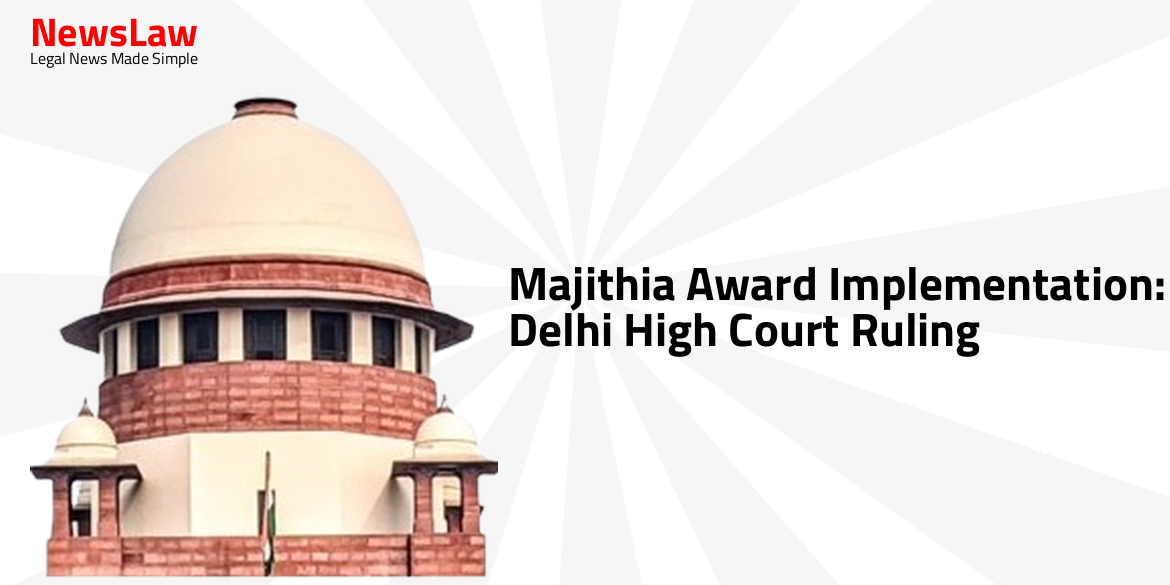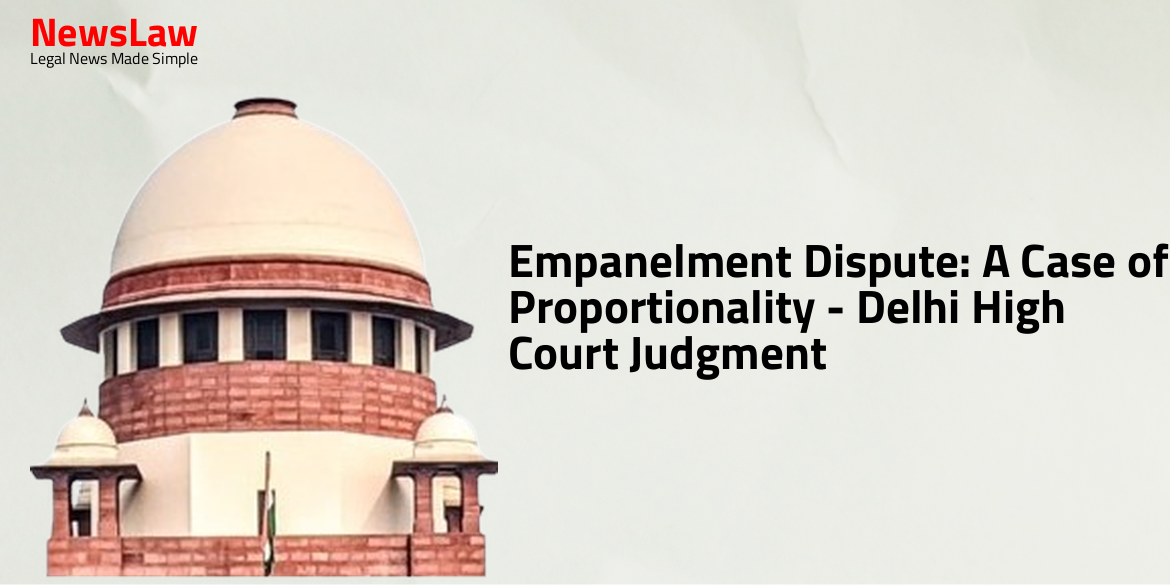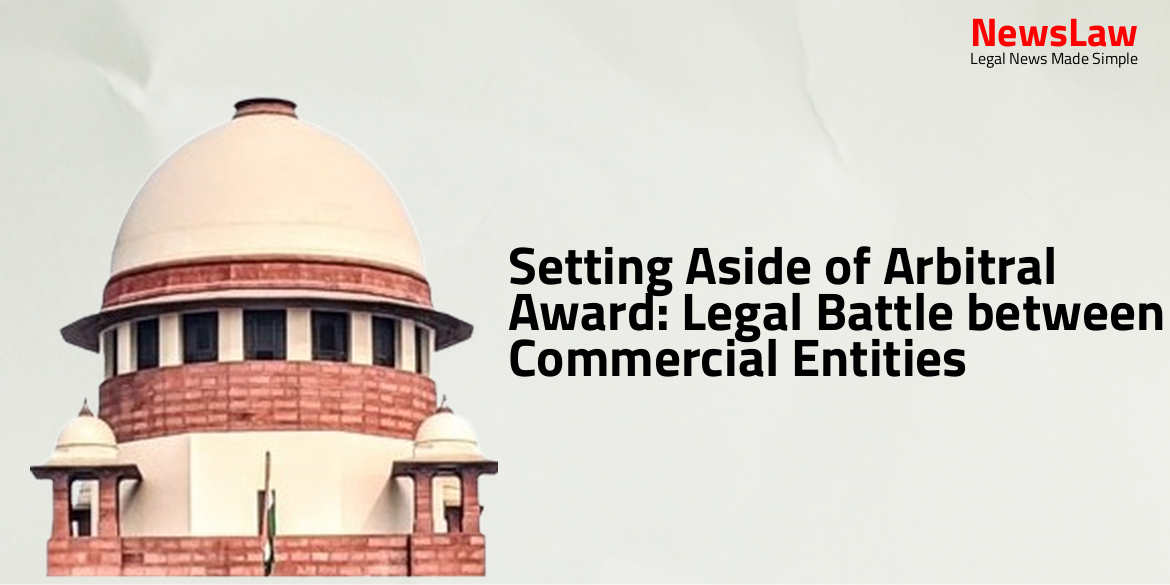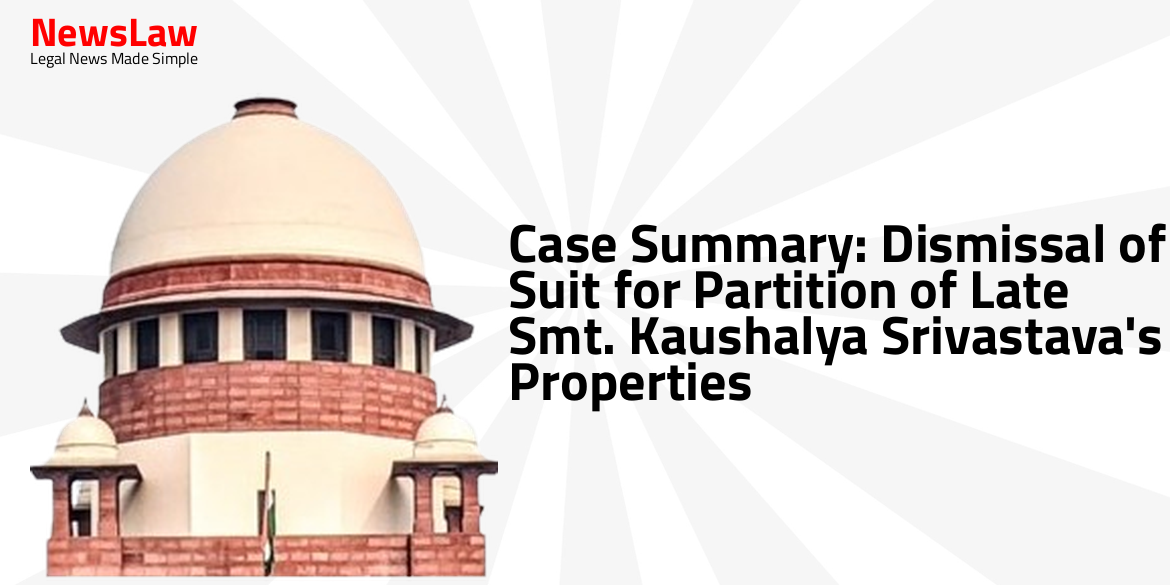Exploring the recent ruling by the Delhi High Court on the implementation of the Majithia Award sheds light on important legal considerations affecting newspaper establishments. The judgment addresses the dispute over revised wages and heavy cash losses, impacting compliance with the Award. Learn about the court’s decision and its implications on newspaper establishments in this detailed blog post.
Facts
- Central Government has the authority to accept or reject recommendations of Wage Boards.
- The learned Single Judge upheld the orders passed by the respondent no.2 and dismissed the writ petitions.
- The appellant could not claim exemption under Proviso to Clause 21 of the Majithia Award.
- The Majithia Award became final and binding on all newspaper establishments.
- The Government did not accept all recommendations of the Wage Boards.
- Recommendations of the Wage Boards are held to be valid in law.
- Newspaper establishments were bound to act in accordance with the Majithia Award.
- No scope for re-hearing by the Central Government while accepting or modifying recommendations.
- The respondent no.3 claimed arrears of increased wages in accordance with the Majithia Award.
- The appellant was directed to make payments for arrears as per orders of respondent no.2.
- The appellant filed writ petitions challenging the orders and recovery certificates issued.
- The appellant disputed classification under Class V and capacity to pay arrears.
- Statesman Mazdoor Union filed applications under Section 17(1) of the WJ Act on behalf of employees.
- Appellant contested the applications stating exemption from payment under Proviso to Clause 21 of Majithia Award.
Issue
- The primary issue before the learned Single Judge was regarding the implementation of the Majithia Wage Board Award in relation to heavy cash losses claimed by the appellant.
- The appellant has given up the claim of heavy cash losses before the current Court, which is different from what was presented before the Single Judge.
- The focus was on whether the appellant is exempt from paying revised wages under the Majithia Award due to alleged heavy cash losses for consecutive years.
Arguments
- The appellant has primarily focused on three key issues in their arguments.
- They question whether a dispute was raised regarding the amount, necessitating proceedings under Section 17(2) of the WJ Act.
- Additionally, they argue if it was permissible to raise this contention later on, and if there was any bar to doing so in the current proceedings.
- Citing legal precedents, the appellant asserts that any detailed assessment of issues must be conducted under Section 17(2) and not under Section 17(1) in case of disputes over the due amount.
- It is contended that the appellant has the right to present legal arguments at any stage, as supported by relevant case law.
- Furthermore, they claim that raising new defenses on the applicability of Section 17(2) at this stage should be barred since it was not raised earlier before the concerned authorities.
- The appellant also states that all necessary details regarding the workmen involved and their recoverable dues post Majithia Wage Board implementation are within their possession.
- Learned counsel for Respondent No.3 sought dismissal of both appeals.
- Other respondents’ counsels supported Respondent No.3’s case and did not present separate arguments.
Analysis
- The appellant’s attempt to introduce new arguments after the initial defence was negated by both respondent no.2 and the learned Single Judge is not permissible.
- The provisions of Section 17(2) of the WJ Act were not required as the appellant had already accepted the position of the respondent no.3 without disputing the quantum of amount involved.
- The Hon’ble Supreme Court clarified that the concept of ‘heavy cash losses’ cannot be determined solely based on financial difficulties faced in paying revised wages.
- The appellant’s claims of ‘huge cash losses’ were found unsubstantiated based on financial records that did not indicate significant losses.
- The appellant cannot raise jurisdictional issues after voluntarily submitting to the Authority’s jurisdiction and participating in the proceedings.
- Any new arguments or pleas introduced at the appellate stage that were not part of the original pleadings cannot be considered.
- The conclusions drawn from the financial statements and the lack of dispute raised by the appellant indicate that the appellant did not qualify for the exception of ‘heavy cash losses’ as per the Award.
- The legislative distinction between Section 17(1) and Section 17(2) of the WJ Act reflects that Section 17(1) is a summary procedure that does not necessitate lengthy adjudication or trials.
- The appellant failed to demonstrate facts or circumstances that would justify interference by the Court with the previous rulings.
- The appellant’s missed opportunity to raise disputes or challenge the jurisdiction earlier bars them from presenting new arguments at a later stage.
- The Court adheres to the findings of the learned Single Judge and rejects the appellant’s attempt to reargue settled contentions.
- The appellant’s inability to establish continuous or crippling losses over the relevant financial years disqualifies them from claiming ‘heavy cash losses’.
- The doctrine of merger applies, consolidating the present appeals with the previous judgment passed by the learned Single Judge.
- The Court emphasizes the importance of maintaining consistency in arguments and pleadings throughout the legal proceedings.
- The Supreme Court distinguished between heavy cash losses and mere financial difficulties.
- The court emphasized the importance of accurately understanding the distinction between the two concepts.
- It was clarified that heavy cash losses are different from financial difficulties and should not be confused or equated with each other.
- This differentiation plays a crucial role in legal judgments involving financial matters.
- Understanding the nuances between heavy cash losses and financial difficulties is essential in making fair and just decisions.
- Section 17(1) of the WJ Act allows a newspaper employee to recover any amount due from their employer
- The recovery process can be initiated before the concerned State Government
- The newspaper employee has the right to seek recovery from the employer under the specified conditions
- The Court does not agree with the legal submissions or the applicability of the judgments cited by the senior counsel for the appellant.
- None of the cited judgments can be considered due to the Court’s disagreements.
- The Court concludes that the appellant has failed to make a valid case, rendering the present appeals meritless.
- Based on deliberations, analysis, and settled legal positions such as the Majithia Award and rulings in ABP Pvt. Ltd. and Avishek Raja, the Court sees no grounds to interfere with the impugned judgment.
Decision
- The present appeals have been dismissed.
- The pending applications have been dismissed as well.
- The appellant is directed to comply with the findings of the Competent Authority and those rendered by the learned Single Judge within four weeks.
Case Title: THE STATESMAN LTD Vs. GOVT OF NCTOF DELHI AND ORS (2024:DHC:4398-DB)
Case Number: LPA-778/2023



